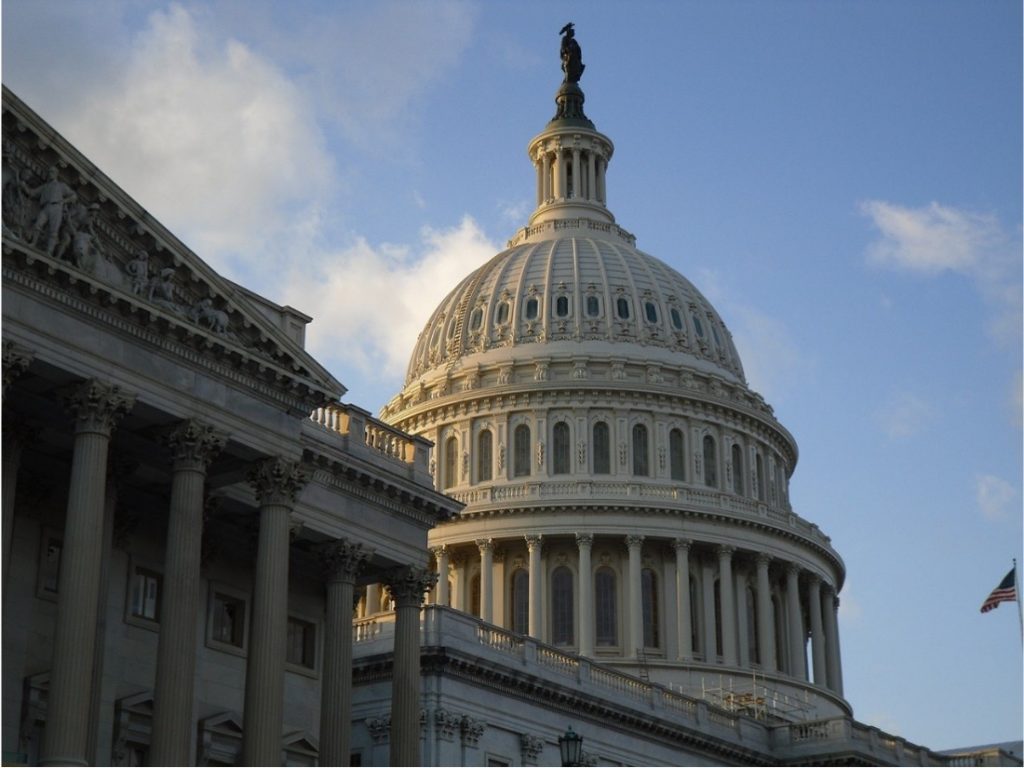By Kat Gingolaski, Staff Writer

Photo courtesy of Pixabay.com
TikTok was released to the world in September 2016, and by 2018 was the most downloaded app in the United States.[1] It currently has 1 billion active monthly users worldwide and is in 141 of 155 possible countries.[2] As of January 2024, the U.S. has the largest number of TikTok users with almost 170 million people.[3]
On March 13, 2024, the House of Representatives passed a bill 352-65 which would give TikTok’s parent company, ByteDance about six months to divest its interest in the app or risk a U.S. ban.[4] The concern about TikTok comes from the knowledge that in 2014 ByteDance established an internal branch run by China’s Communist Party. This branch can view the activity and data that TikTok collects through its normal services[5]. There are also two pieces of Chinese legislation that raise particular concern for the U.S. Government: the 2014 Counter-Espionage Law and the 2017 National Intelligence Law (NIL)[6]. Article 22 of the Counter Espionage Act states that when state security departments collect espionage evidence, relevant organizations and individuals must truthfully provide the information and cannot refuse.[7] Article 7 of the NIL states that any organization within the Peoples Republic of China (PRC) shall “support, assist, and cooperate with the state intelligence work…and keep the secrets of the national intelligence work from becoming known to the public.”[8] A PRC intelligence agency could request that these companies share access to their customers personal data or they would face consequences.[9]
Information that is relevant to security is not limited to military facilities or nuclear plants, but includes areas like food processing, finance, and universities.[10] Information is readily available through usage of apps and can lead to dangerous situations. A former ByteDance executive has stated that the PRC had access to TikTok data and used it to identify and locate protestors in Hong Kong, an allegation that ByteDance has vehemently denied.[11] In 2022, ByteDance announced that they fired multiple employees for using TikTok data to identify two journalists, a former Buzzfeed reporter and a Financial Times reporter, who may have been connected to a leak of company information.[12] In 2022, Congress banned the use of TikTok on all federally issued devices[13] and since then, over 30 states enforced the same state ban.[14] A 2024 survey by the Associated Press and NORC found that only 31% of Americans strongly or somewhat favor banning the use of TikTok in the United States, while 56% strongly or somewhat favor banning the use of TikTok on U.S. Government devices.[15] However, Anton Dahbura, Executive Director of the Johns Hopkins University Information Security Institute, stated that regular citizens can impact national security more than they think.[16]
While most of the House of Representatives found that the national security concern of TikTok is worth the ban, not everyone agrees.[17] Ranking Democratic Member of the House Intelligence Committee, Rep. Jim Hines stated that it is not the prerogative of the government to shut down social media platforms and decide what information the people are able to see.[18] The ACLU argued that banning TikTok would be a first amendment violation because of the mass amount of people who use the app for “information, communication, advocacy, and entertainment.”[19]
The vote passed to the Senate but they are working on their own regulation to ban the app meaning a decision about the future of TikTok is not expected until later this year.
[1] TikTok User Statistics 2024: Everything You Need To Know (searchlogistics.com)
[2] Id.
[3] Americans divided on TikTok ban even as Biden campaign joins the app, AP-NORC poll shows | AP News
[4] U.S. lawmakers push for ByteDance to divest TikTok or face ban | Reuters
[5] Former ByteDance executive says Chinese Communist Party tracked Hong Kong protesters via data | AP News
[6] Huawei would have to give data to China government if asked: experts (cnbc.com)
[7] Counter-espionage Law (chinalawtranslate.com)
[8] Data Security Business Advisory: Risks and Considerations for Businesses Using Data Services and Equipment from Firms Linked to the People’s Republic of China (dhs.gov)
[9] Id.
[10] Id.
[11] Former ByteDance executive says Chinese Communist Party tracked Hong Kong protesters via data | AP News
[12] ByteDance finds employees obtained TikTok user data of two journalists | Reuters
[13] Here Are The 39 States That Restrict TikTok On Government Devices (forbes.com)
[14] US judge upholds Texas TikTok ban on state-owned devices | Reuters
[15] Most adults support banning TikTok on government devices – AP-NORC (apnorc.org)
[16] Why TikTok’s security risks keep raising fears | AP News
[17] House passes TikTok ban bill, but its Senate path unclear | AP News
[18] Id.
[19] ACLU Slams House for Latest Plan to Ban TikTok and Stifle Free Speech | American Civil Liberties Union